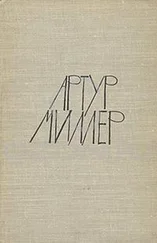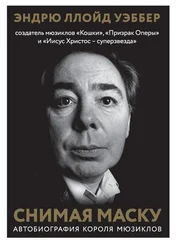There was a great deal more of this, though from the moment Milošević had stripped Kosovo of its autonomy, László had entertained no serious doubts about the justice of the Albanian cause. The unhappy Serbs with their deranged leader were in thrall to a mythology cooked up in the nineteenth century and reheated by nationalist communist demagogues a hundred years later. What was it he had heard it called? ‘The politics of fantasy and hatred.’ But it was one matter to denounce a regime while sitting at the dinner table among friends, quite another to assist the operation of a group committed to its violent overthrow. There could be no doubt any more whose company he was in. Did Emil Bexheti already have blood on his hands? Where had he been when the rector of Pristina University was attacked in January?
Twice during the meeting the cellphone rang. Most of the talking was done by the voice at the other end, to which Emil paid respectful attention. Towards the end of the hour he poured László a glass of lukewarm water from a bottle of Volvic.
‘In ’56,’ he said, coming to the point László had been expecting for some time, ‘did you question the legitimacy of armed resistance?’
‘No,’ said László.
‘Though you knew it was not a game? That people, many people, would be killed?’
‘We were a country under occupation.’
‘You fought for your freedom.’
‘Yes.’
‘You still believe that was right?’
‘Yes. But it might be worth your remembering that we lost. A good cause is no guarantee of victory.’
‘So the sacrifice was futile?’
‘No,’ said László. ‘Something was achieved, though it’s hard to say exactly what. They showed us our weakness, but we also showed them theirs. Certainly nobody who saw what happened then was surprised at the speed of the collapse in ’89.’
‘It was more than that, monsieur. You set an example for the entire world.’
‘The best of them did. Though in an affair like that there is always much brutality. Lynch mobs. Summary executions. It wasn’t always very edifying.’
‘I know that some consider you a political fatalist. I am, of course, familiar with your work. But I ask you once more, in all earnestness – were you and your comrades wrong to take up arms?’
László shook his head.
‘Would you deny to others the right to do likewise?’
‘Obviously I could not.’
‘Then may I assume you would not oppose a movement that pursued objectives comparable to those you once fought for?’
‘Why would I oppose it?’
‘Would you support it?’
‘Perhaps.’
‘Actively or passively?’
‘You would make a good Jesuit,’ said László.
‘Religion,’ snarled the young woman, ‘is essentially fascistic.’
‘And you,’ said László, ‘would have made an excellent Party member. You have a head full of slogans.’
Emil said: ‘You can help us, monsieur. The risk would not be great. You are now a successful and respected man. I do not ask you to throw this away.’
László frowned at the other’s conceit. ‘Perhaps I want to throw it away. Perhaps I am not at all what you think I am, Monsieur Bexheti. Do not have too much confidence in your research. But suppose you now tell me, in the most specific terms, what it is you want of me.’
There was a pause. Emil nodded. ‘I have your solemn word that you will speak of this to nobody?’
‘Very well.’
‘Not even to Monsieur Engelbrecht?’
‘Not even to Monsieur Engelbrecht. Not immediately. Here, however, you must trust me to manage things as I see best.’
Before the woman could object, Emil signalled his agreement. ‘We are in your hands, monsieur.’
‘Let us say we are in each other’s hands,’ said László. He wondered what would happen if he betrayed them. Would a police launch fish him out of the Seine? He prepared himself – ready now to imagine almost anything – but what they wanted of him was so simple his first reaction was a sharp disappointment. They wanted a courier. A postman. Someone who would carry a case abroad, and then come home.
‘Nothing more?’
‘Nothing more.’
‘And what does the case contain? Documents?’
Another pause.
‘Money?’
‘As I am sure you already know,’ said Emil, ‘for several years there has been a tax on all émigré Albanians to pay for the parallel republic. For the schools and the hospitals we were forced to establish for ourselves. Now there are many who want us to be more active in the defence of our rights. They are prepared to give generously in order to make that possible.’
‘Money to buy guns.’
‘Also food, medicine, clothes…’
‘Uniforms.’
‘You want us to buy books?’ asked the woman.
‘I would prefer it immensely,’ said László. ‘But tell me, where would this case have to go?’
‘Can you not guess?’ asked Emil.
‘No,’ said László, ‘not at all.’
‘Where are you most qualified to go? Where would you not be a stranger? Where do you know the language…’
‘The language ?’ So that was it! He had been chosen not because he was “a friend of justice”, but because he spoke an impossible language!
‘You want me to go to Hungary?’
‘To Budapest,’ said the woman.
László threw back his head and laughed: he couldn’t help it. What fun the gods were having with him now! It was strange, however, that he had not seen it coming.
‘Who,’ said Emil, leaning forward and lighting a cigarette, ‘could suspect your motives in going there? You know the city…’
‘I have not been there since ’91.’
‘How much does a city change in six years? And you have relatives there.’
‘Two rather dim cousins. A very elderly aunt. My brother…’
‘…is in America. We know all this. The point is that I would be a foreigner there. My presence would immediately be suspect. I am also well known to the Serbian informers in Paris, of whom there are many. The moment I left my apartment it would be reported.’
‘But why Budapest?’
‘That is more than you need to know,’ said the woman.
László shook his head. ‘You will have to do better than that.’
‘We go,’ said Emil, ‘wherever there are people who will provide the items that we need.’
‘I know Budapest has its share of Ukrainian mafia,’ said László. ‘Are these the people you are dealing with?’
Emil held up his hands, palms out. ‘As my colleague has said, that is more than you need to know. Or rather, more than I am at liberty to tell you. Suffice to say that when one goes shopping one does not always admire the character of the shopkeeper.’
László tugged a handkerchief from his pocket and carefully wiped the sweat from his eyes. ‘Supposing,’ he said, ‘that I considered doing as you ask – and for the moment I commit myself to nothing – when would I have to leave?’
‘Six, perhaps seven days’ time.’
‘And I would receive this case in Paris?’
‘We will give you the details when we have your answer. You must please inform us by fifteen hundred hours tomorrow. If we have not heard from you by then it will be assumed that you do not wish to help us. You will not be contacted again. And this meeting will not have happened.’
He passed over a slip of paper with a number on it. ‘Call from a public telephone. Do not say who you are. Simply ask “Is Françoise there?” Nothing more.’
‘Is Françoise there.’
‘We will take care of the rest.’
‘One more thing,’ said László. ‘You mentioned Kurt Engelbrecht. If I find that you have involved him in any of this I will go directly to the authorities and denounce you. Is that understood?’
Читать дальше












